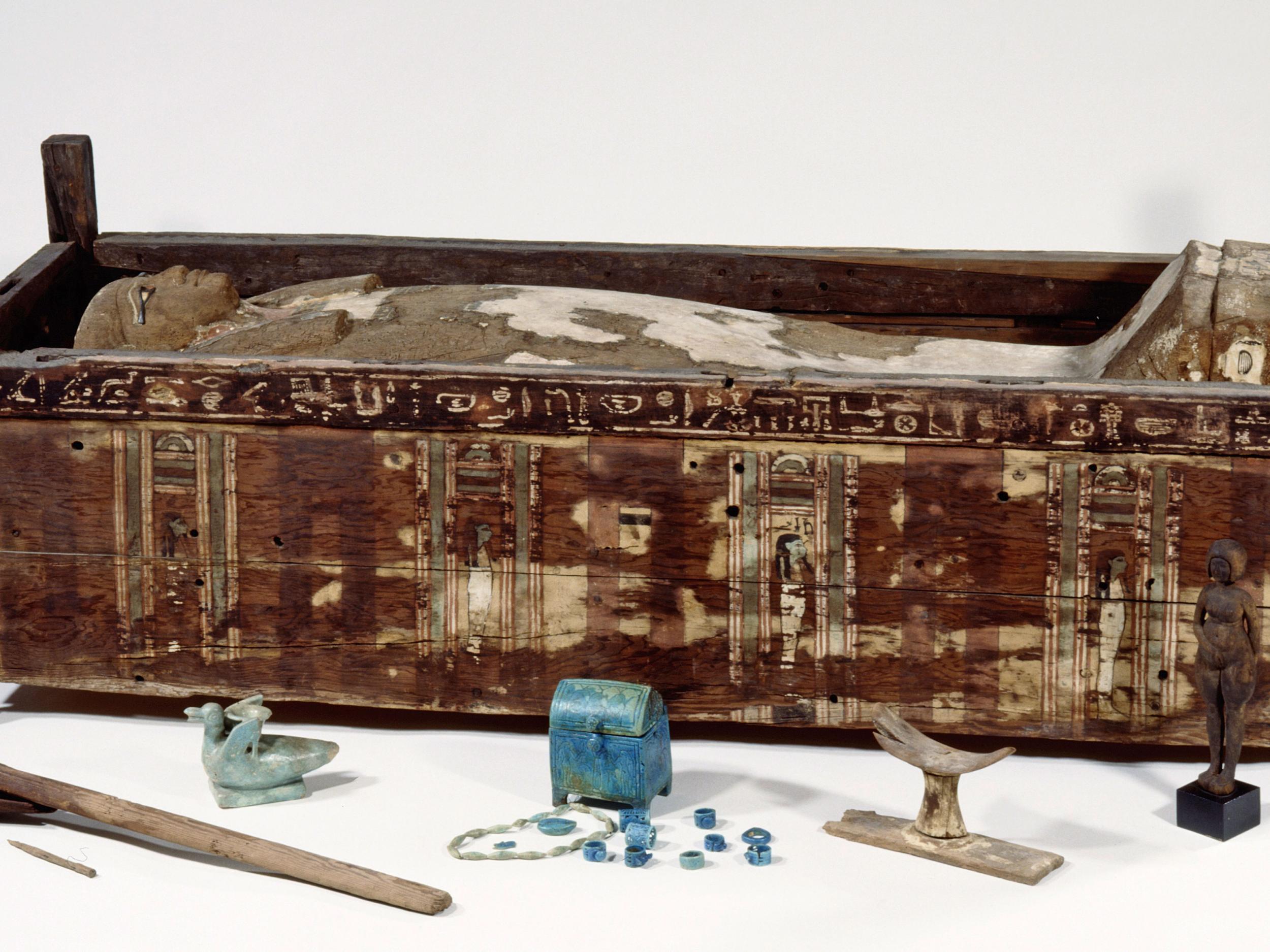The Independent's journalism is supported by our readers. When you purchase through links on our site, we may earn commission.
Ancient Egyptians more closely related to Europeans than modern Egyptians, scientists claim
However Egyptologist says he is 'particularly suspicious of any statement that may have the unintended consequences of asserting – yet again from a northern European or North American perspective – that there’s a discontinuity' between ancient and modern populations

Your support helps us to tell the story
From reproductive rights to climate change to Big Tech, The Independent is on the ground when the story is developing. Whether it's investigating the financials of Elon Musk's pro-Trump PAC or producing our latest documentary, 'The A Word', which shines a light on the American women fighting for reproductive rights, we know how important it is to parse out the facts from the messaging.
At such a critical moment in US history, we need reporters on the ground. Your donation allows us to keep sending journalists to speak to both sides of the story.
The Independent is trusted by Americans across the entire political spectrum. And unlike many other quality news outlets, we choose not to lock Americans out of our reporting and analysis with paywalls. We believe quality journalism should be available to everyone, paid for by those who can afford it.
Your support makes all the difference.Scientists who managed to obtain full genome sequences of Ancient Egyptians for the first time have concluded the people of the pharaohs were more closely related to modern Europeans and inhabitants of the Near East rather than present-day Egyptians.
But the claims sparked suspicion from one leading Egyptologist, who questioned whether genetic analysis could justify such a sweeping statement and pointed to a long history of spurious attempts to separate ancient Egyptians from the modern-day population.
The mummies were taken from a single archaeological site on the River Nile, Abusir el-Meleq, which was inhabited from 3,250BC to 700AD and was home to a cult of Osiris, the god of the dead, making it a good place to be buried.
A complete genome sequence was obtained for three mummies and mitochondrial DNA, which is passed through the female line, was obtained from 90 individuals. They were dated to between about 1,400BC and 400AD.
The researchers, writing in the journal Nature Communications, admitted their sample “may not be representative for all of ancient Egypt”.
Nevertheless, they concluded the mummified people were “distinct from modern Egyptians, and closer towards Near Eastern and European samples”.
“Our analyses reveal that ancient Egyptians shared more ancestry with Near Easterners than present-day Egyptians,” they wrote.
And they added: “We find that ancient Egyptians are most closely related to Neolithic and Bronze Age samples in the Levant, as well as to Neolithic Anatolian and European populations.
“When comparing this pattern with modern Egyptians, we find that the ancient Egyptians are more closely related to all modern and ancient European populations that we tested, likely due to the additional African component in the modern population.”
In contrast to the changes between the ancient and modern period, the researchers, from Cambridge University and institutions in Germany, Poland and Australia, found the genetic make-up of the mummies was remarkably constant despite the arrival of the Romans and other foreign powers.
Dr Wolfgang Haak, group leader at the Max Planck Institute for the Science of Human History, said: “The genetics of the Abusir el-Meleq community did not undergo any major shifts during the 1,300-year timespan we studied, suggesting that the population remained genetically relatively unaffected by foreign conquest and rule.”
However Professor Stephen Quirke, an Egyptologist at University College London, expressed caution about the researchers’ broader claims.
“There has been this very strong attempt throughout the history of Egyptology to disassociate ancient Egyptians from the modern population,” he said.
“I’m particularly suspicious of any statement that may have the unintended consequences of asserting – yet again from a northern European or North American perspective – that there’s a discontinuity there.
“When we are discussing it, we have to be much more sensitive to how these kinds of statements are read outside where we are at the moment.”
Professor Quirke added that he felt “we are not yet anywhere near” being able to make “very drastic conclusions” about the tens of millions of people living in Egypt.
While there have been a number of influxes of people from outside Egypt, he suggested that the impact could sometimes be over-stated.
For example, Professor Quirke said many thousands of soldiers had taken part in the Arab Invasion of Egypt in the 7th century, but they were still vastly outnumbered by the resident population of about six million.
Join our commenting forum
Join thought-provoking conversations, follow other Independent readers and see their replies
Comments